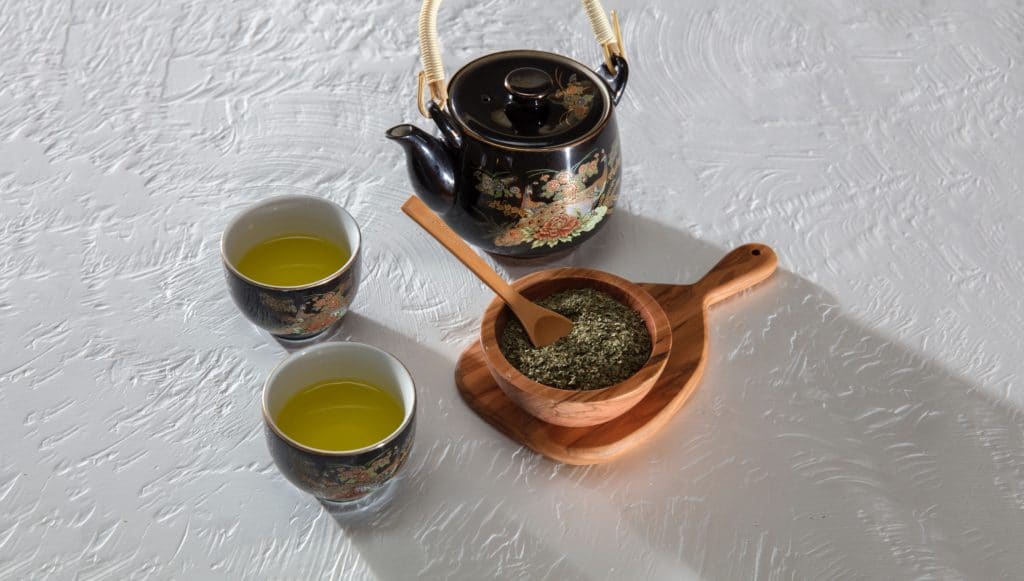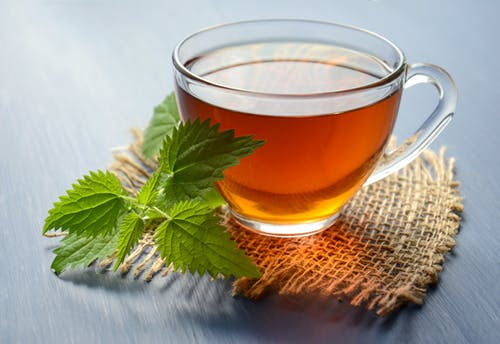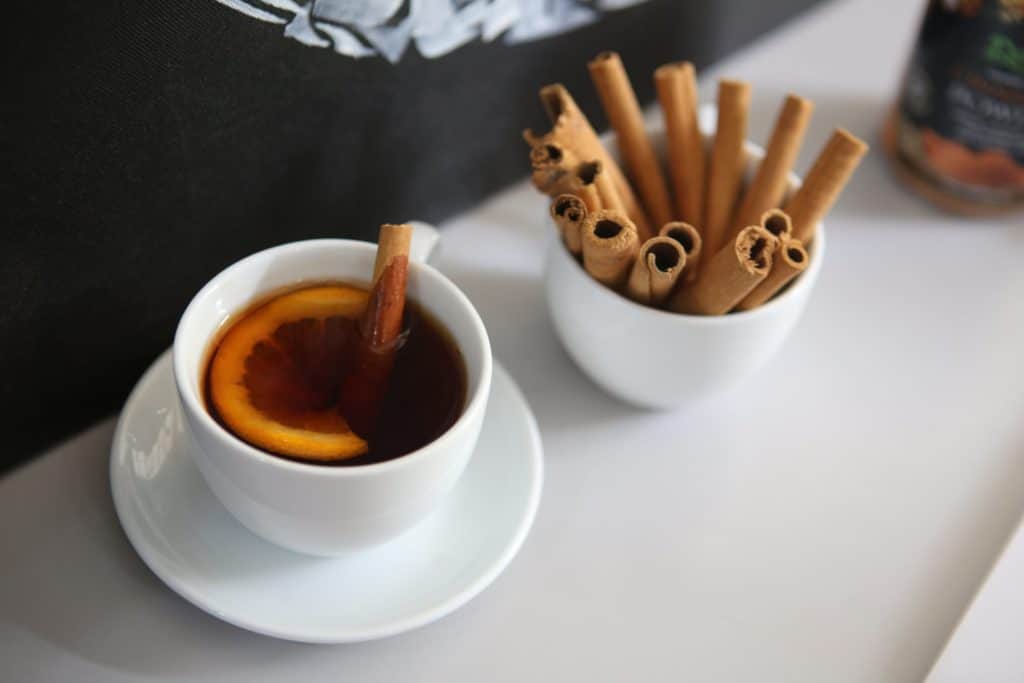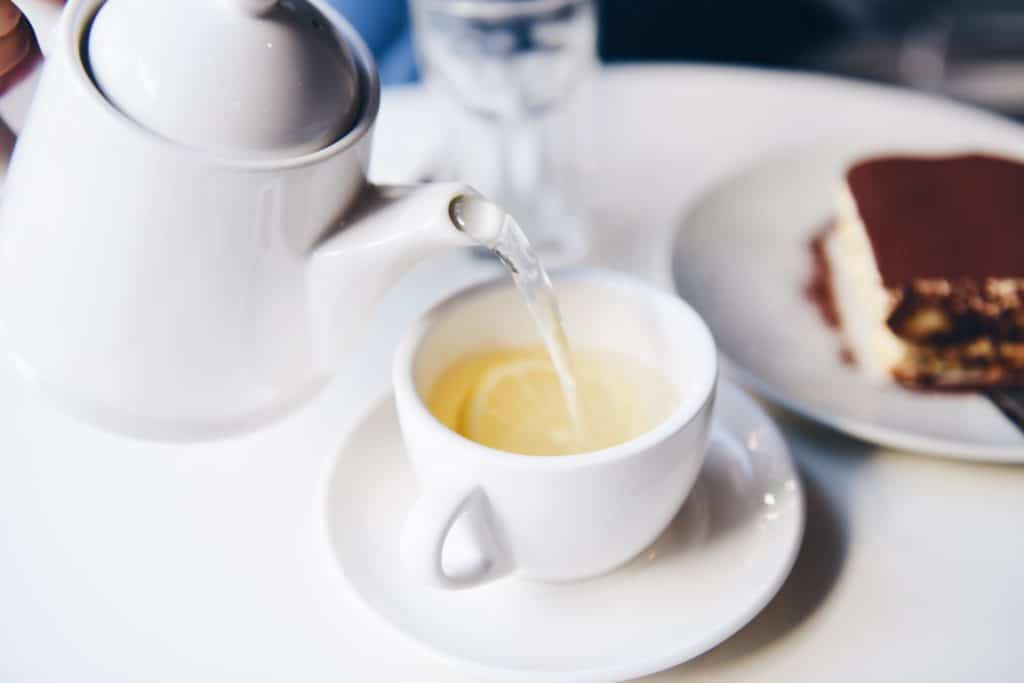
7 Best Teas for Healthy Seniors
November 12, 2019The health benefits of tea are seemingly endless. Teas are usually full of antioxidants and important nutrients that can reduce the risk of heart attack and stroke, assist with weight loss, protect your bones, soothe your digestive system, keep you hydrated, and more.
Different types of tea can provide different benefits. Today, we’ll share the seven teas that you should keep in your pantry to help relieve different symptoms.
#1 – Green Tea: Best Tea for Energy and Focus
Even though green tea has about half the amount of caffeine as a cup of coffee, it has been proven to improve energy and focus as well as improve sleep quality. Plus, a Japanese study proved that L-theanine, which is found in green teas, can improve focus and reduce anxiety.
Aging can bring a natural decrease in energy, and coffee might not be the best way to supplement it. While coffee can provide energy by keeping you alert, green tea can provide a more calming energy and keep you relaxed throughout the day.
Plus, green tea contains about 30% polyphenols, substances that can protect your cells from damage, reducing the risk of certain diseases, and the effects of aging.
Best Green Tea for Energy
While all green teas should be made the same way, some are more processed than others. The best green tea for energy and focus will be natural and fresh.
It’s also best to use loose leaves instead of tea bags. Even though tea bags may be easier to use, they also typically contain broken, low-quality tea leaves and are more likely to gather dust.
Lose leaves will often have a stronger, fresher flavor and are less likely to have lost nutrients during production.
Check your local organic or healthy food store for fresh green tea leaves.

#2 – Peppermint Tea: Best Tea for a Cold
There’s a reason why cough drops are commonly peppermint flavored, and why you might feel clean and refreshed after enjoying a peppermint candy or gum: menthol. Menthol is an alcohol naturally derived from peppermint or mint oils. It creates a peppermint flavor, but it also is a counterirritant for skin and mucous membranes.
Menthol also creates a local anesthetic effect. That’s why while enjoying a cough drop (and for the moments after), you might notice that you can’t feel the irritation in the back of your throat anymore.
Peppermint tea can have a similar effect to a menthol cough drop when you have a cold. It can help break up any mucus in your throat that is causing a cough or itchiness.
At the same time, peppermint itself has antibacterial properties that can fight off disease and boost your immunity – making peppermint tea a great option for when you’re fighting off a cold.
Peppermint Tea for Caffeine
Like other herbal teas, natural peppermint tea does not contain any caffeine! That means peppermint tea is also a great option for those who are actively trying to avoid caffeine.
Peppermint Tea for Nausea
Though ginger may be what people more commonly reach for when it comes to nausea and digestion solutions, peppermint tea can work wonders for that as well. Peppermint can relax the stomach muscles and make it easier for bile to break down fats.

#3 – Chamomile Tea: Best Herbal Tea for Sore Throats
Chamomile tea has natural anti-inflammatory, antioxidant, and astringent properties. Similar to peppermint tea, drinking chamomile tea when you have a cold can help soothe a sore throat!
The main difference in whether you choose chamomile or peppermint (other than flavor) is what kind of illness you are trying to cure. If you have a lot of phlegm build up in your throat, peppermint tea might do a better job of breaking that up. However, if you have strep throat or another condition that leaves you with an itchy, dry throat, chamomile might be the better option.
Another great option available at grocery stores is a product called “Throat Coat.” Throat Coat has a distinct licorice taste that some people love, and some people hate. Throat Coat, produced by Traditional Medicinals, is known for being a useful tool for vocalists who have a scratchy throat but have a performance coming up. The product can cause major temporary relief from an itchy or scratchy throat! It includes organic ingredients such as licorice root, slippery elm bark, marshmallow root, and traces of cherry bark, fennel fruit, cinnamon bark, and orange peel.
Cinnamon Tea: Best Tea for Weight Loss
While cinnamon tea has not been directly tied for weight loss, cinnamon itself does have certain properties that can contribute to weight loss.
For starters, cinnamon is loaded with fiber, which can make you feel full and prevent you from overeating. Additionally, cinnamon has been said to boost your metabolism due to the amount of energy it takes your body to process the spice.
Similarly, cinnamon can reduce bloating – which doubles as a remedy for indigestion!
Cinnamon Tea for Diabetes
Cinnamon tea is also “said to increase insulin sensitivity and decrease blood sugar,” which can help control type 2 diabetes.
Type 2 is the most common type of diabetes but is also the most preventable and treatable. People with type 2 diabetes frequently begin with “prediabetes.” If you’re prediabetic, that likely means you have high blood sugar and your body is starting to reject insulin. Healthy eating, exercise, and weight loss can help prevent your prediabetes from turning into type 2 diabetes. Cinnamon tea and other cinnamon products may help you keep your blood sugar down (but that doesn’t mean you can eat all the sugary cinnamon rolls you want)!

#5 – Ginger Tea: Best Tea for Nausea
You probably already know that ginger ale can be a fantastic remedy for an upset stomach, but ginger ale products can be loaded with sugar! Ginger tea is a healthier option for curing nausea.
Healthline.com recommends drinking about four cups of ginger tea to reduce nausea. If you don’t have ginger tea, you can use freshly grated (or store-bought grated) ginger by steeping it in hot water the same way you would tea leaves. Be sure to sip your ginger tea slowly if you already have an upset stomach!
If your ginger tea is too bitter, try sweetening it with natural honey before turning to granulated sugar.
Ginger Tea Health Benefits
Other than relieving nausea and an upset stomach, ginger tea has other health benefits as well. Ginger is naturally anti-inflammatory, so regular ginger tea drinking can be a home remedy for muscle and joint aches (soaking in ginger can have the same effect).
Ginger can also improve your blood circulation, relieve menstrual discomfort, relieve stress, strengthen your immune system, and fight respiratory problems.
Ginger Tea Side Effects
Like anything else, ginger is only good in moderation! Some people may experience diarrhea or abdominal discomfort after drinking too much ginger tea or consuming too much ginger. Some people also experience heartburn and lightheadedness.
If you notice strong side effects or sudden discomfort after drinking ginger tea, stop use, and call your doctor if symptoms worsen.
#6 – Jasmine Tea: Best Tea for Stress
Jasmine tea is a combination of tea leaves and jasmine blossoms. Jasmine’s aroma has been called a stress reducer for years, with a variety of perfumes, lotions, and candles carrying the jasmine scent. The scent triggers a “parasympathetic” response, which releases chemicals that allow you to relax.
Like everything else, stress can become more dangerous as you age, so it’s important to stay on top of it. Dr. Michelle Dossett from the Institute for Mind Body Medicine says, “Our cells are aging. Heart fitness and lung capacity decline, especially if you’re sedentary.” When your heart fitness and lung capacity decline, your body’s natural stress response can sort of take over more than it did in the past.
If your stress gets particularly bad, it may be time to speak to a counselor. Make yourself some jasmine tea and find a counselor near you. Stress, anxiety, and depression are nothing to wait on: get help now!
#7 – Lemon Verbena: Best Tea for Inflammation
A lot of different teas have anti-inflammatory properties, but lemon verbena tea has been used for centuries to treat colds, fevers, anxiety, indigestion, spasms, insomnia, immunity, weight loss, etc. Lemon verbena is all around a great tea to keep in your house.
In regards to inflammation, lemon verbena is a plant with natural anti-inflammatory properties. Inflammation is not always obvious. When you think of inflammation, you probably think of your skin turning red, blotchy, or even bumpy, like in the case of an allergic reaction. While that’s certainly one type of inflammation, inflammation can also occur in your muscles and joints. It can be the result of an infection or a physical injury. Inflammation can be the result of a large number of illnesses, so an anti-inflammatory product like lemon verbena tea is certainly multi-use.

Electric Tea Kettles for Seniors
Ready to give some of these tea suggestions a try? How will you try them at home?
Whether you have arthritis, weak muscles, or dementia…or you’re just a little bit worried, there are safe tea kettle options out there designed with seniors in mind. When you’re choosing a tea kettle for yourself or a senior relative, you should keep the following six factors in mind:
Weight: Weak or arthritic hands will find a heavy tea kettle cumbersome. Dropping a steaming hot tea kettle can be a disaster! Look for tea kettles that are small to begin with so that they aren’t incredibly heavy when full of water.
Automatic shut-off: Regardless of how old you are, it’s easy to pour your tea but forget to turn off the kettle. Forgetful seniors will benefit from an electric kettle that automatically turns off when the water is boiling.
Cool handle: Make sure the kettle you purchase has a cool handle, so you don’t have to worry about remembering to wear your oven mitts! The same goes for other heating elements. Sometimes you’ll notice in toasters and other devices that certain elements turn red when they heat up. Those are exposed heating elements and can be a burn hazard.
BPA-free: Read the packaging to look for BPA-free kettles. BPA is a chemical found in plastic that can be harmful if ingested.
Cordless: A cordless kettle reduces tripping hazards and is easier to carry.

